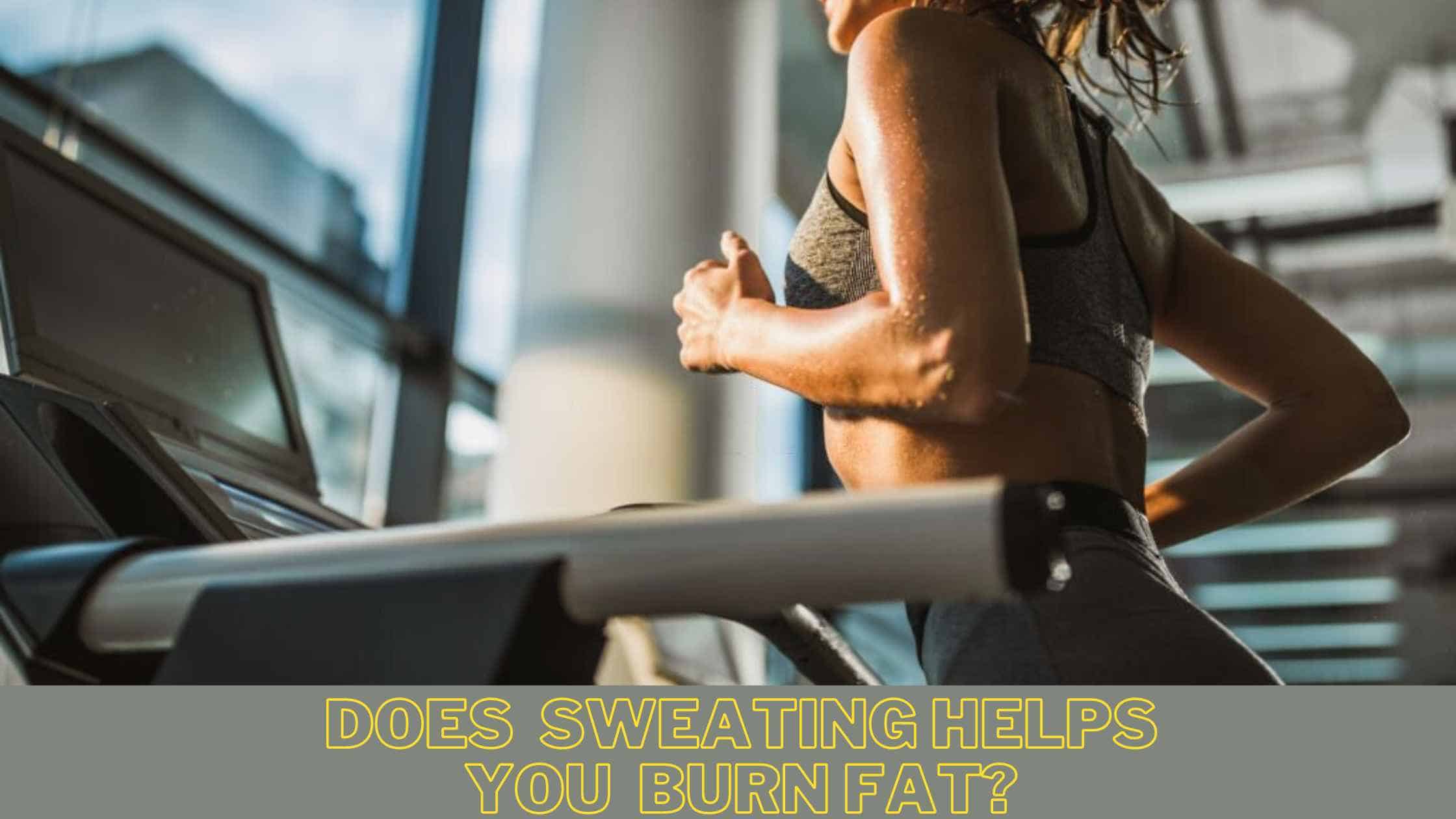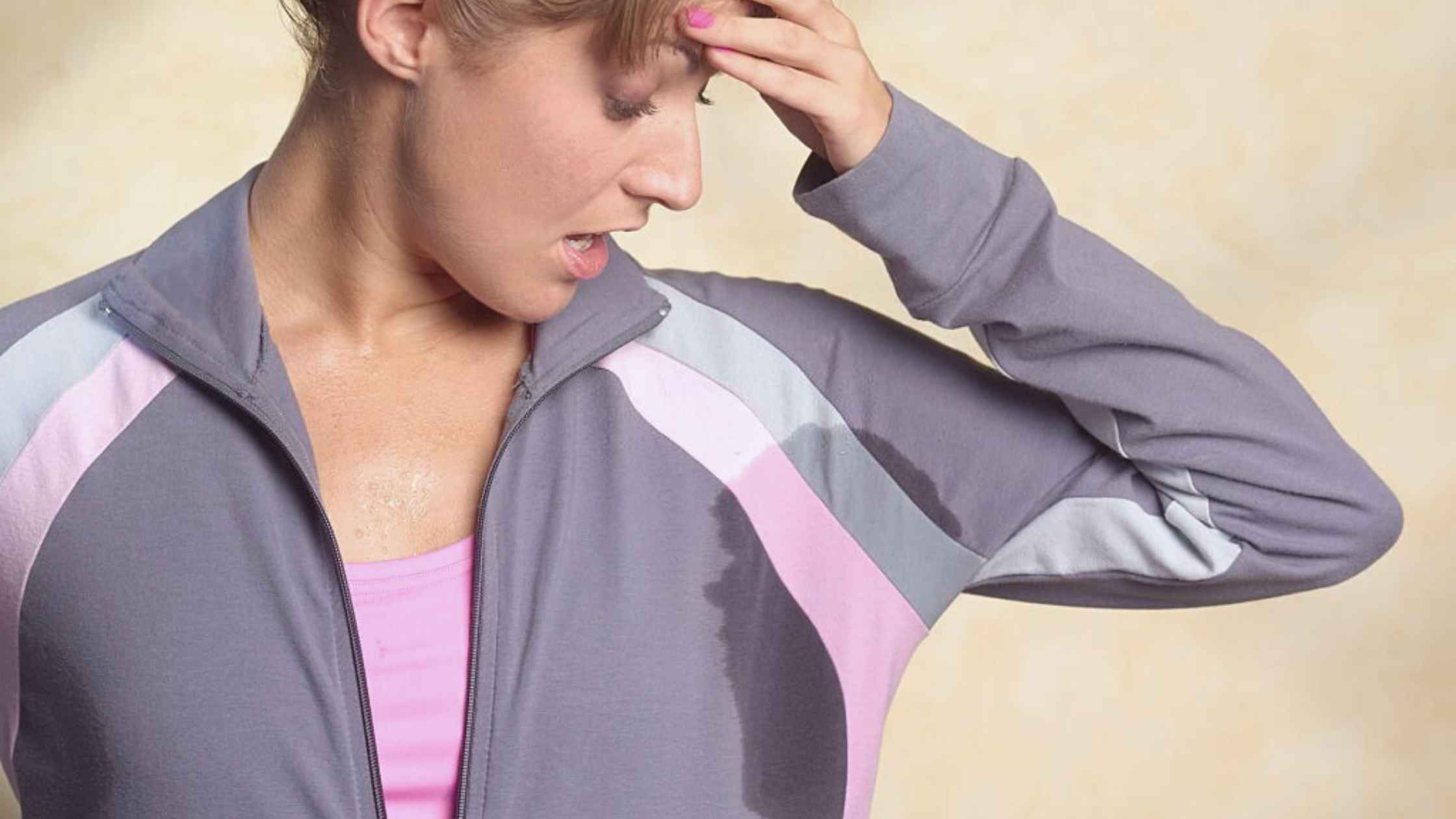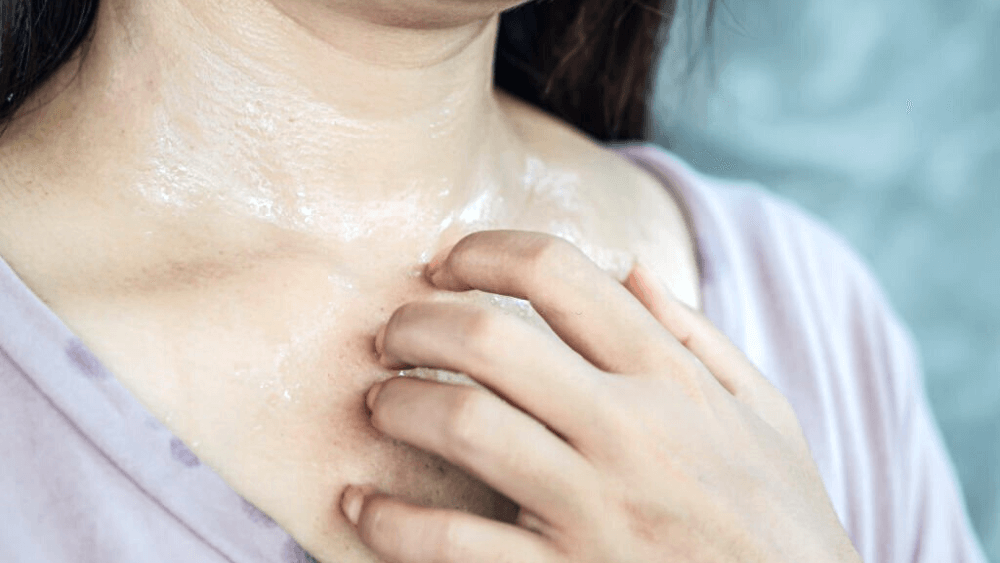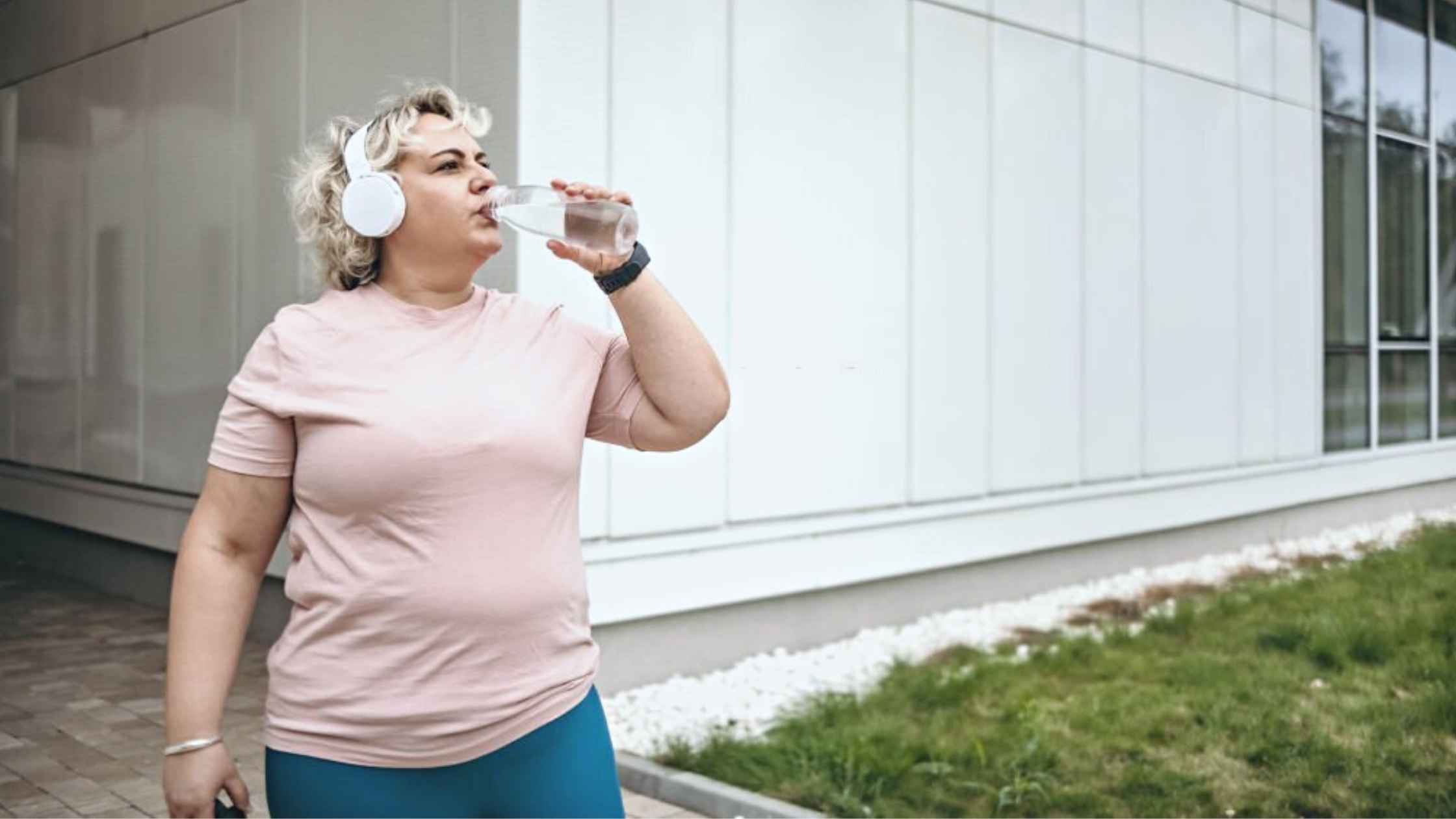Health
Does Sweating Burn Fat? Check What Experts Have To Say!

While you are working out, you will inevitably sweat. But the frequently asked question is whether you are burning fat while sweating.
You must have heard a lot of times that sweating helps maximize the burning of fat. Still, before you ultimately zip yourself into a sauna suit & crank up the heat even in the home gym, you should know whether sweating can or cannot help your goal of losing weight.
Does Sweating Burn Calories? – How much Fat can you Burn from sweating?
Technically you do not burn fat while sweating. You may indulge yourself in a very intense workout for fat-burning, but sweat is not the reason for burning fat.
So, even if you are sitting in a pool filled with sweat, this is not a real sign that you are effectively burning fat.
Fat burning is scientifically a metabolic procedure. When you are engaged in exercise sessions, your body effectively breaks down the fats and carbohydrates to generate adenosine triphosphate or ATP. This is referred to as the energy currency of the body.
Sweating, on the contrary, is a procedure for cooling the body.
When your body’s core temperature increases due to exercise or excessive environmental heat, your brain sends signals to produce sweat.
As the moisture from sweating evaporates, this usually takes some heat away with it and finally helps lower your body’s temperature towards normal.

Do you burn calories while sweating?
While sweating does not burn fat, an internal cooling process is a sign that you are effectively burning calories.
The major reason is that we sweat a lot during a workout, and the energy we expend generates the body as internal heat. So, if you work out very hard to sweat, you will burn many calories in this process.
Whether these calories come primarily from carbs or fat will depend on the duration and intensity of the workout.
Generally, carbohydrates are used first as they are stored in the liver and muscles in a limited amount. After a specific time, once carbohydrate reserve is used, your body utilizes the fat reserves to burn and receive energy.
What is the main purpose of sweating?
Sweat glands normally produce sweat in the skin’s deeper layer called the dermis. The sweat glands usually occur all over the body, and numerous are present on the forehead, the palms, the feet’s soles, and the armpits.
Sweat is nothing but majorly water that contains a certain amount of salts. The major function of sweat is to control the temperature of the body. As the sweat forms on the surface of the skin evaporate, the skin’s surface cools down. The additional function of sweat is to help an individual better grip, which slightly moistens the individual’s palms.
Normal sweating
Normal and healthy sweating is usually caused due to the following reasons:
- Due to extremely high environmental temperatures during summers
- Emotional stress
- Physical stress
- Consuming spicy or hot foods
- Fever – deemed to be a general medical condition
Reasons for increased sweat or hyperhidrosis
Excessive sweating is referred to as hyperhidrosis. The condition of Idiopathic hyperhidrosis is very common. This is referred to as idiopathic, as no concrete reason is found behind this issue.
This can be developed in an individual during childhood or, at times, at later phases of one’s life. This condition can affect one or multiple body parts like the armpits, soles, and palms. This issue of excessive sweating may occur even in cool weather. However, it worsens during the summer and when a person is under severe emotional stress.

Some of the known causes essentially include:
- Hormonal changes that are caused due to menopause
- Obesity
- Overactivity of the thyroid gland also referred to as hyperthyroidism
- Diabetes
- A few medications
In most cases, there are usually no investigations required to diagnose hyperhidrosis. At times, a test of blood to detect any thyroid diseases is sometimes recommended.
Treatment for hyperhidrosis or excessive sweating
Treatment for increased sweating majorly depends on the cause of it in a particular individual. This may include:
- Weight reduction – in case a person is obese.
- Topical applications like antiperspirants containing around 25% aluminum salts and anticholinergic medications can work to reduce excessive sweating.
- Medical management like oral ‘anticholinergic’ medications can be prescribed for blocking the sweat glands’ activation very often.
- Hormone replacement therapy is usually prescribed to reduce the frequent hot flashes caused due to menopause.
- Iontophoresis can be conducted where the sweat glands’ activity is reduced temporarily by treating the sweat glands through the skin with an electric current of low intensity.
- Botox injections can paralyze the sweat glands, and a single injection can work for up to nine months fairly.
- Non-invasive microwave treatment can be used to treat the excessively active sweat glands of the armpits.
- Nerve surgery can control the sweat gland, and this treatment is adopted in cases that are very severe and where all treatments have proved to be unsuccessful.
Self-help strategies for controlling hyperhidrosis
A few of the strategies or precautions that may help in managing hyperhidrosis are:
- You may wear loose clothes.
- You may use antiperspirants that contain aluminum chloride & are effective for controlling hyperhidrosis. However, you should follow the instructions very carefully. Although these products are majorly advertised for use in the armpits, they can be used on the soles, palms, and forehead as well, where hyperhidrosis usually occurs the most.
Reduced sweating or hypohidrosis
The condition of reduced sweating is commonly referred to as hypohidrosis. This can probably occur due to any of the following reasons:
- Skin burn that has damaged that particular area’s sweat glands
- Certain skin disorders
- Dehydration
- Underactive thyroid or hypothyroidism
- Excessive exercise or heat due to hot weather
The lack of sweating usually gives rise to numerous problems, like controlling the body’s temperature. Hypohidrosis can be a root cause of increasing an individual’s body temperature very steeply during the summer months. At times, this can prove to be life-threatening as well.
Heat exhaustion and heat stroke
Heat exhaustion, sunstroke, or heat stroke are likely to occur during extremely hot weather when not enough sweat is produced to control the temperature of the body. Some of the symptoms of sunstroke may be the following:
- Headache
- Muscle cramps
- Vomiting
- Nausea
When excessive body salts & water are lost from the body, this may lead to a very severe life-threatening complication, also referred to as heat exhaustion. The medical condition of heat stroke can be well-managed, and heat exhaustion can be prevented by moving to a shaded and cool place, drinking a lot of fluids and water & also by sponging the patient’s body with cold water.
What are the Side effects of over sweating
The probable side effects of over-sweating are:
- Infections – People prone to excessive sweating have the maximum chance of getting skin infections.
- Emotional and social effects – Always having drippy or clammy hands and sweat-wet clothes is embarrassing in front of other people in society. This condition can likely affect your pursuit of attaining your educational or work goals in educational institutions and workplaces.

Does sweating measure the intensity of your workout?
In case there is any correlation between the quantity of sweat you have produced in the period of the workout and the intensity of the workout, here is the answer for you.
No, both of these are not necessarily correlated, although this can sometimes be a factor. While individual sweats more, this is an optional indicator of having a fulfilling and optimal workout. The intensity in which you work is a crucial factor that often determines the quantity of sweat produced, but there are other factors responsible.
There can be several variables that are likely to impact the quantity of sweat produced, like the environment. You will surely sweat less, even during an intense workout in an air-conditioned indoor environment. In contrast, you will sweat more if you practice the same workout intensity in a non-AC outdoor environment. There are several other factors, like your fitness level and body size.
Another crucial aspect of sweating is that you may sweat a lot without knowing the quantity of sweat it produces. Sweat is not always visible as they do not always show up in the form of droplets as the sweat keeps on evaporating into the environmental air. Thus, the amount of visible sweat is not the right indicator of the workout’s quality.
If you work out under the same environmental conditions, a lighter form of workout like yoga will result in lesser sweat, and an intense workout like cycling can cause your muscles to work harder and produce more sweat.
How to burn your fat naturally?
The effective ways of burning weight naturally are:
- Drinking lemon water with honey – Drinking warm lemon water and two teaspoons of honey help detox your digestive system. This will help you get rid of the excess fat & consuming this daily for a few weeks will bring visible results.
- Powder of carom seeds, fenugreek seeds & seeds of black cumin – Methi seeds or fenugreek seeds increase the metabolic rate of the body, which helps lose fat. Ajwain or carom seeds help in the procedure of losing weight. Kali jeera or black cumin seeds are also great in getting rid of the excess fat in the belly region and the overall body weight. You can simplify the process by dry roasting and grinding them into a mixture. This is a very simple and effective remedy for reducing weight.
- Consuming honey and cinnamon-infused tea – Dalchini or cinnamon is a spice commonly used in several Indian dishes, both savory and sweet. Cinnamon helps lose weight. This spice has integral properties of curbing the cravings for sugar. Thus, this helps in regulating the level of insulin within the blood. It is very simple to prepare this. All you need to do is to put e sticks of cinnamon & a teaspoonful of honey in lukewarm water. You can stir this well, and it is prepared to consume.
- Chewing garlic in a raw form – Garlic possesses antiseptic properties, which are commonly found in every kitchen in India. If you chew two cloves of garlic every morning, then it will certainly prove to be beneficial for losing weight. This has a very intense taste and smell, but consuming it is still highly beneficial.
- Stop consuming all forms of artificial sugars – The sugar found in vegetables and fruits is natural. You can add this sugar to the diet found in fruits and vegetables. To lose weight, you should restrict yourself from consuming artificial sugars. You must cut down on ice creams, sweets, aerated drinks & similar products.
- Always keep yourself hydrated – You should make it a point to drink a lot of water daily, which will facilitate your weight loss journey.
- Sleeping for 8 hours – You should make it a point to squeeze in at least eight hours of sound sleep daily.
- Eating on a small-sized plate – Human psychology is a major reason for everyone’s lifestyle. Like several things, our brain perceives what we eat. If you take a small plate, you will automatically eat lesser. If you take a large plate, you will eventually end up overeating.

Expert advice
Sweating can help an individual temporarily drop a few pounds very quickly. In case you are regularly exercising, you must be wondering if you are burning fat or not. The very straightforward answer to the same is that if you are sweating, you are likely to burn fat.
Sweating is not the only way to burn fat. It has been found that some individuals sweat more as compared to others when heat is added to this mix, the process of sweating speeds up.
If you are willing to maximize the burning of fat, you should focus on the intensity of the workout instead of the sweatiness level.
Your body prefers fat as a fuel; thus, when you work at a low intensity and carry on the same for a fairly long duration, you will lose fat.
Once you enhance the overall intensity of your workout, your body will start using the carb deposits in your body, as these can be quickly accessed over a shorter period.
FAQs
1. Does sweating mean that you have lost fat?
Sweating is just an indication that your body has lost water, and it is not at all an indication that your body has necessarily lost fat.
2. Does sweating mean you are losing calories?
Physical activities generally burn calories. The more intensely you use your muscle groups, the more calories you will be able to utilize. However, there is one correlation that exists here. The more your use your muscle groups, the more heat is produced in the body, and thus more sweating is caused.
3. Does every individual sweat at a different rate?
Yes, every individual sweats at a different rate. Some individuals are acclimated to the extremely hot weather, and their bodies know very well if they need to be cooled down. Also, different people can start sweating at various temperatures as well. Some individuals suffer from the excessive sweating disorder, referred to as hyperhidrosis. In this case, around 4 million glands that produce sweat in the body become hyperactive.
4. What causes sweating?
Sweating is the natural mechanism of the body to cool it down at high temperatures.
5. Are there any risks associated with sweating?
If you are sweating profusely for a long time, you may experience dehydration, which may lead to symptoms like loss of consciousness, seizure, weak pulse, dizziness and extreme exhaustion.
